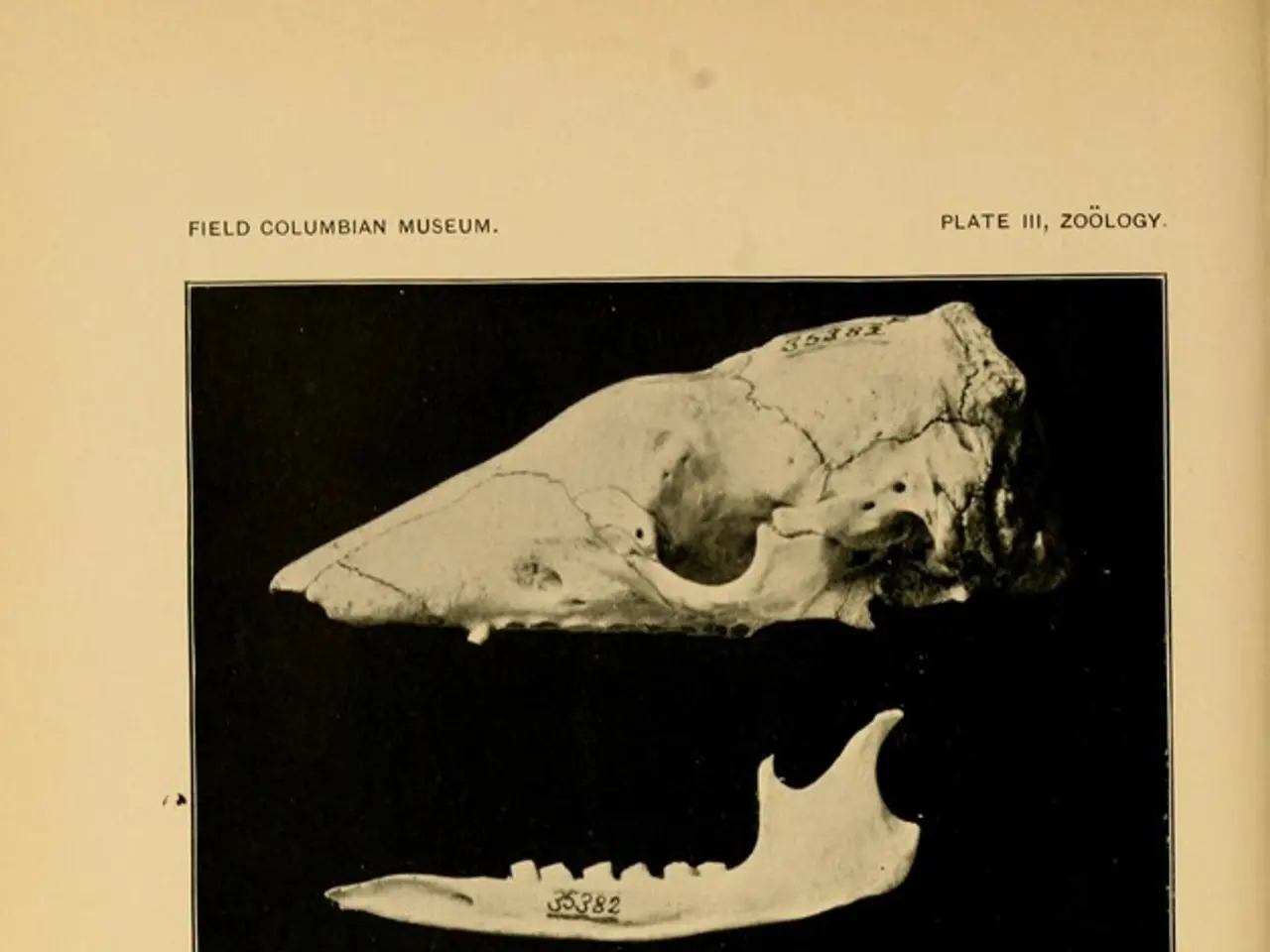Thyroid cancer: Genetic tendencies and associated risks explained
Thyroid cancer is a type of cancer that originates within the cells of the thyroid gland, a small, butterfly-shaped gland located in the neck. This gland is responsible for producing hormones that regulate essential bodily functions such as metabolism and heart rate.
Recent research has identified several genes associated with an increased risk of thyroid cancer. These genes can contribute to both hereditary and sporadic cases of the disease.
Medullary Thyroid Cancer (MTC)
Medullary thyroid cancer is a rare subtype of thyroid cancer that arises from the parafollicular cells of the thyroid gland. This type of cancer is strongly linked to the RET proto-oncogene, which has an autosomal dominant inheritance pattern and confers about a 50% risk if a parent is affected.
Non-Medullary Thyroid Cancers
Non-medullary thyroid cancers, which include papillary thyroid carcinoma (PTC), show increased familial risk (5-10 times higher) associated with genes like FOXE1, NKX2-1, DICER1, and BRAF (especially the BRAF^V600E variant). These cases typically involve a polygenic risk mediated by multiple susceptibility genes.
Thyroid Differentiation and Epigenetic Influence
Other genes involved in thyroid differentiation and carcinogenesis include PAX8 and epigenetic regulators such as those related to m7G RNA modifications (e.g., METTL1, WDR4), which influence tumor progression.
Genetic Testing and Risk Assessment
Genetic testing for RET mutations is clinically significant for MTC risk assessment, while familial non-medullary thyroid cancers involve a polygenic risk mediated by multiple susceptibility genes.
Prevention and Early Detection
To reduce the risk of developing thyroid cancer, individuals can avoid radiation exposure, check their family history, follow a balanced diet, undergo self-exams, and manage any underlying thyroid conditions. Early detection and prompt treatment are crucial for achieving the best possible outcome in thyroid cancer. Regular follow-up appointments with healthcare professionals are essential for monitoring and managing thyroid cancer.
Symptoms and Treatment
The most common sign of thyroid cancer is the presence of a lump or nodule in the neck. If a person experiences any of the symptoms such as hoarse voice, difficulty swallowing, sore throat, swollen lymph nodes, or swelling in the neck, it is important to consult a healthcare professional for an evaluation.
Surgery, radiation therapy, radioactive iodine therapy, targeted cancer drugs, thyroid hormone replacement, and chemotherapy are treatment options for thyroid cancer. The prognosis for thyroid cancer is generally good, with a high survival rate for some types. Anaplastic thyroid cancer is the most aggressive and rare form of thyroid cancer.
Frequency and Demographics
Most cases of thyroid cancer occur in females aged 40-44 and in males aged 70-74. Thyroid cancer is more common in women than in men.
Heredity and Risk Factors
While thyroid cancer can be hereditary, it is not solely due to direct inheritance from family members. Certain genetic mutations, such as mutations in the RET and RET/PTC genes, have links to an increase in the risk of thyroid cancer. Obesity may also increase the likelihood of developing thyroid cancer.
Hereditary Conditions and Thyroid Cancer
A family history of thyroid cancer or certain hereditary conditions, such as familial medullary thyroid cancer, can increase the risk of developing thyroid cancer. Follicular thyroid cancer is less common than papillary thyroid cancer.
In summary, understanding the genes associated with an increased risk of thyroid cancer can help in risk assessment, prevention, and early detection efforts. Regular check-ups and self-examinations, along with a balanced diet and avoidance of radiation exposure, are essential for maintaining thyroid health and reducing the risk of thyroid cancer. If you have any concerns or symptoms, always consult a healthcare professional for guidance.
| Thyroid Cancer Type | Associated Genes | Inheritance/Notes | |---------------------------|--------------------------------|----------------------------------------| | Medullary Thyroid Cancer | RET | Autosomal dominant; ~50% risk if parent affected[1][3] | | Non-Medullary Thyroid Cancer (including PTC) | FOXE1, NKX2-1, DICER1, BRAF (especially BRAF^V600E) | Complex/polygenic; familial risk increased 5-10x[1][2][5] | | Thyroid Differentiation & Epigenetic Influence | PAX8, m7G modification genes (METTL1, WDR4) | Affect tumor biology and prognosis[2] |
Read also:
- Abu Dhabi initiative for comprehensive genetic screening, aiming to diagnose over 800 conditions and enhance the health of future generations in the UAE.
- Elderly shingles: Recognizing symptoms, potential problems, and available treatments
- Protecting Your Auditory Health: 6 Strategies to Minimize Noise Damage
- Exploring the Reasons, Purposes, and Enigmas of Hiccups: Delving into Their Origins, Roles, and Unsolved Aspects







